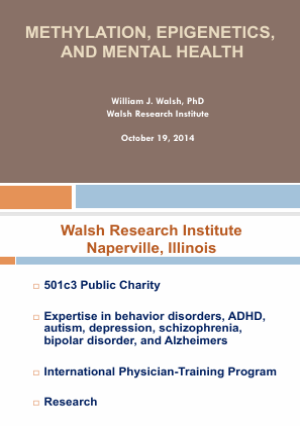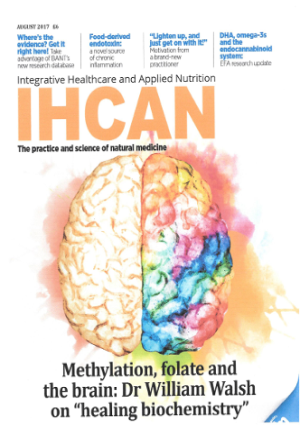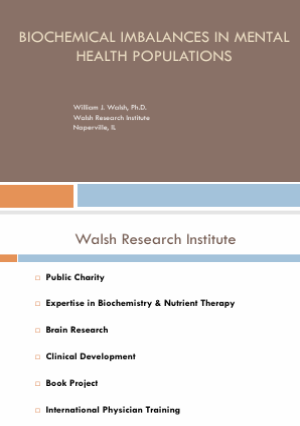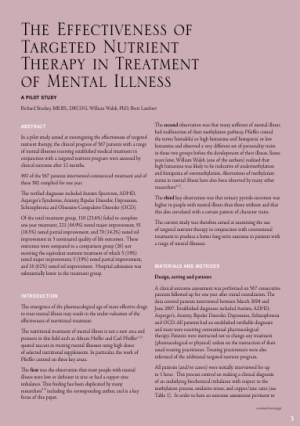The Science Behind The Walsh Protocol
The Walsh Protocol is grounded in decades of clinical data, comprising over 2.5 million chemical test results from thousands of patients with conditions such as autism, ADHD, depression, schizophrenia, and bipolar disorder. It emphasizes epigenetics, oxidative stress, biochemical individuality, and neurotransmitter regulation by nutrients. Notably, Dr. Walsh's approach proposes distinct biochemical "biotypes" of mental health conditions—including five depression subtypes (e.g., undermethylation, overmethylation, copper overload, pyrrole disorder, toxic metals).
Training in the Walsh Protocol
**Mastering Brain Chemistry Online Course** (MD/DO practitioners):
Self-paced study: March 13–April 16, 2026
Live webinars: April 17–18 and April 24–25, 2026
Covers neurotransmitter biochemistry, epigenetic regulation, testing protocols, and therapeutic frameworks holisticchildpsychiatry.com/the-walsh-protocol-and-biochemical-imbalances/
Advanced Course for Walsh-Trained Practitioners:
A three-day continuing education webinar based on 2025 prerecorded content, delving into methylation disorders, NMDA-targeted therapies, bipolar insights, pyrrole correction, and nutrient form improvements walshinstitute.org
Essential Principles (ADHD + Behavior Disorders):
A two-day prerecorded introduction to non-drug protocols for ADHD and behavioral control, backed by extensive clinical experience with thousands of patients
walshinstitute.org.
Latest
Walsh Research Institute Updates
New Approaches:
A 2025 interview featuring Dr. David Epstein (a Walsh protégé) explores novel methylation-support protocols using alkalinity (bicarbonate) to enhance SAH clearance and creatine supplementation to reduce methylation demand Second Opinion Physician.
Scientific Updates
Related Colab Education Videos on the Walsh Protocol
Do speak with a member of the Colab Services Team if you wish to learn more or be notified of upcoming events related to this topic.







